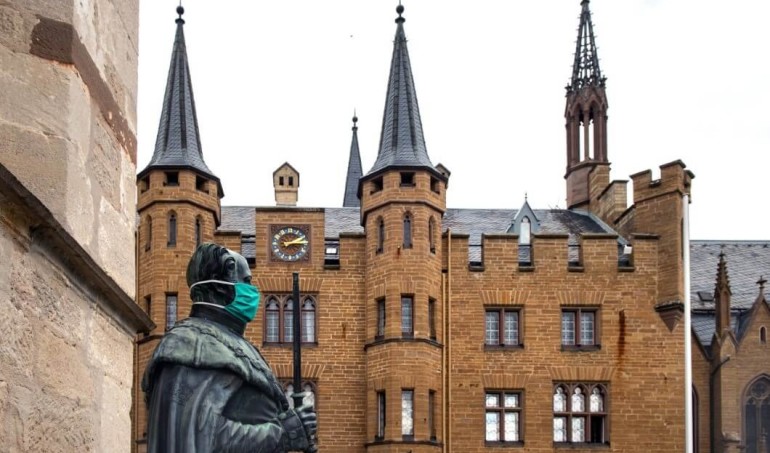Sponsored Listings:
The Corona crisis is hitting tourism harder than almost any other industry. German tourism does not expect a thorough recovery in 2021 either.
After a historic drop in sales of an estimated 80% in the Corona crisis year, the German travel industry hopes for catch-up effects and the imminent availability of a vaccine. “I am cautiously positive about the coming year,” said Norbert Fiebig, President of the German Travel Association DRV in Berlin.
“50 to 60% of the sales of the record year 2019 are hopefully achievable – especially if there is some positive effect from not travelling this year.” In 2019, tour operators and travel agencies had generated sales of around 36 billion euros.
However, there are no signs of a turnaround for the current winter season: The turnover is more than 70% below the level of the same period last year. There are currently few destinations without entry restrictions or quarantine upon return.
The Federal Statistical Office announced that there were 33.4 million overnight stays by domestic and foreign guests in October 2020 in Germany. That was 26.7 percent less than in October of the previous year.
The domestic accommodation establishments registered 2.2 million overnight stays among guests from abroad. This corresponds to a decrease of 71 percent compared to the previous year. With 31.2 million overnight stays, the trend among domestic guests was less negative, but the number of overnight stays fell by 17.6 percent as of October 2019.
According to Fiebig, there are some glimmers of hope for the important summer season of 2021. Following the latest vaccine announcements, new bookings are currently rising significantly – although at a low level. According to a recent DRV survey, half of the German tourism companies expect business to pick up again in the summer.
Business in the industry had come to a virtual standstill due to travel warnings and the associated cancellation of trips already booked. According to estimates of the association, travel agencies and tour operators recorded a drastic drop in sales of 80% in the calendar year 2020.
In the tourism year between 1 November 2019 and 31 October 2020, the sales of trips booked with travel agencies and online travel platforms plunged by an unprecedented 67% compared to the previous year. In summer, the main holiday season for German citizens, there was even a minus of 81%.

Travel warnings, quarantine regulations and appeals from politicians to refrain from travelling altogether have accompanied the industry and increasingly caused uncertainty among companies and travelers alike, said Fiebig. “How business picks up again depends on various factors: Vaccine, smart testing strategy, economic development and consumer mood.” Travel appreciation has increased as a result of the pandemic, he said.
Another result of the survey: For 80% of the companies in the travel industry, governmental aid is essential for survival in order to get through the winter, Fiebig reported. This mainly reimburses fixed operating costs, including rents and leases. The DRV President demanded that “there has to be a readjustment of the bridging aid III”. Larger SMEs, in particular, have been hit hard and are falling through the cracks.
In view of the downturn in business, according to the DRV, 80% of travel agencies and 80% of tour operators have applied for shorter working hours this year. They see this as necessary for the coming year as well. According to Fiebig, about two-thirds of the agencies and tour operators in German tourism have already had to lay off staff or are likely to have to do so. “We have to be careful that we don’t lose our very well-trained specialists to other sectors because of this pandemic,” warned the DRV President.
Source: tourism-review.com










